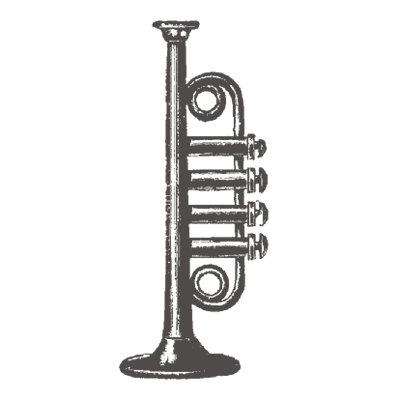A new approach to construction contracts
On 22 October 2025, at the Polish Chamber of Commerce in Warsaw, Prof. Piotr Machnikowski provided an overview of the work underway in the Codification Commission on new regulations for construction contracts. If the proposal becomes law, it will be a fundamental change for the entire Polish construction market.

Standing of acquirers of claims in consumer credit disputes (Court of Justice case C-80/24)
In disputes over consumer credit, banks deal not only with consumers but also with companies whose business is to buy up claims from consumers, including claims related to the sanction of “free credit.” But this procedure generates many questions. Can consumers sell their claims against the bank? If so, under what conditions can the acquirer pursue the claim before the court?

Can an institution demand repayment of EU financing years later?
Contrary to popular belief, funding institutions’ claims for reimbursement of EU financing are not eternal. The national and EU regulations provide certain timeframes beyond which the institution loses the right to demand return of the funds. More and more frequently businesses which carried out and accounted for projects years before, financed from EU funds, are now receiving demands to repay the funds, often in connection with irregularities uncovered in subsequent audits. Does the institution still have the right to demand repayment five, eight, or even ten years after the project is completed?

Report. Extradition cases in Poland 2022–2024
This is the first edition of a report devoted to extradition practice in Poland, in the years 2022–2024. For many months we collected and analysed statistics and decisions by the courts and prosecutors’ offices in extradition cases. Our aim was to form a picture of how this institution functions in practice.

What’s new in environmental law?
A lot has happened in the area of environmental law in Poland in the past few months. We have learned the levels of environmental fees for 2026 and the rates for fines for emission of excess noise for 2026. Proposals have been released for a new Act on Packaging and Waste Packaging and an amendment of the provisions on the operations of the Inspectorate for Environmental Protection. And work is now complete at the EU level on provisions for reducing food waste and for handling textile waste.

EPR for textiles, and combatting food waste
The amendment to the Waste Framework Directive extending the responsibility of producers of textile products, and also setting targets for reducing food waste, enters into force on 16 October 2025. Poland will have until 17 June 2027 to implement the new provisions. But businesses need to be prepared even earlier.

Eliminating the distinction between registered shares and bearer shares, and more—the proposed amendment to the Commercial Companies Code
It is with a tear in my eye that I recall the era of M&A deals where at the closing, the seller delivered stock certificates to the buyer. The revolutionary change in this respect came with the 2021 amendment to the Commercial Companies Code, introducing mandatory dematerialisation of shares. Now the changes are going even further.
[1] Of co
[1] Of co

Voting by mail by shareholders at the general meeting of a public joint-stock company
Shareholders of a public company can take part in the general meeting of shareholders personally at the location where the meeting is held, via electronic communications, or by mail balloting. What is mail balloting, and why is this method of voting at general meetings so rarely used in public companies?

Public-private partnerships for military infrastructure: The European Investment Bank’s recommendations for Poland
The opportunities for using public-private partnerships in the Polish defence sector are attracting greater and greater attention. This is particularly evident in the context of the current challenges in implementing the Pact for the Security of Poland—Central Pomerania and the recommendations from the European Investment Bank for execution of key infrastructure projects. The Pact for the Security of Poland report was announced on 5 September 2025 in the Pomeranian city of Ustka. This strategic document calls for implementation of key infrastructure projects, including upgrading of seaports, expansion of transhipment terminals, and adapting road and rail networks for military transport.

Want to enter the defence sector? Start with a facility security clearance
The defence sector in Poland and Europe as a whole is growing at a pace not seen for decades. Increased state budget expenditures, new financial instruments (EDF, SAFE, ReArm Europe, Poland’s Security and Defence Fund), and the openness of state-run entities to cooperation with private industry are creating genuine business opportunities for Polish and foreign firms. More and more businesses, including those in the civilian economy, are considering taking part in projects for the Polish Armed Forces or submitting bids in tenders for strategic supplies, services and infrastructure.

What does the Data Act regulate, and what is its significance for businesses?
The Data Act became applicable on 12 September 2025. What do businesses need to pay attention to under this new EU-wide regulation?

The corporate value of effective whistleblowing systems
Whistleblowing became a buzzword in Poland in 2024 following the delayed implementation of the EU’s Whistleblower Directive (Directive (EU) 2019/1937 of the European Parliament and of the Council of 23 October 2019 on the protection of persons who report breaches of Union law) (WBD). By September 2024, most private companies in Poland were required to comply with national legislation mandating internal policies for reporting and follow-up actions. At the time, many organisations scrambled to meet these statutory requirements—some were fine-tuning existing speak-up channels to align with the new law, while others were building a framework from scratch. The business press was flooded with discussions on compliance, and webinars and seminars on the topic were everywhere. However, much of the focus was on setting up reporting channels and policies, often overlooking the broader significance and long-term impact of these changes.
